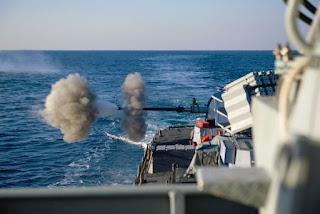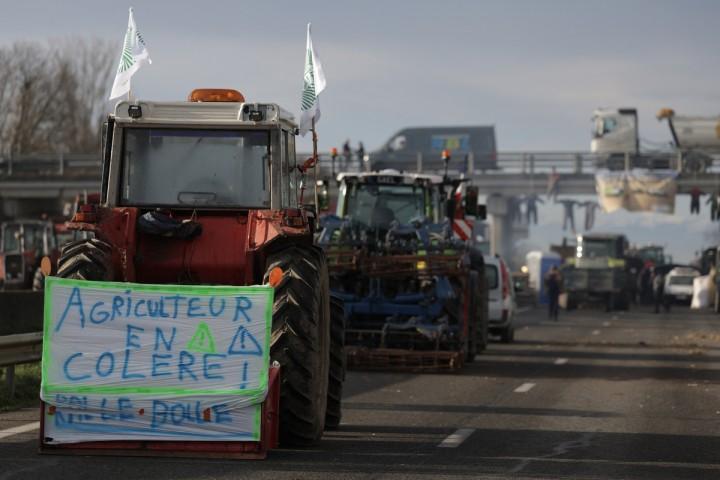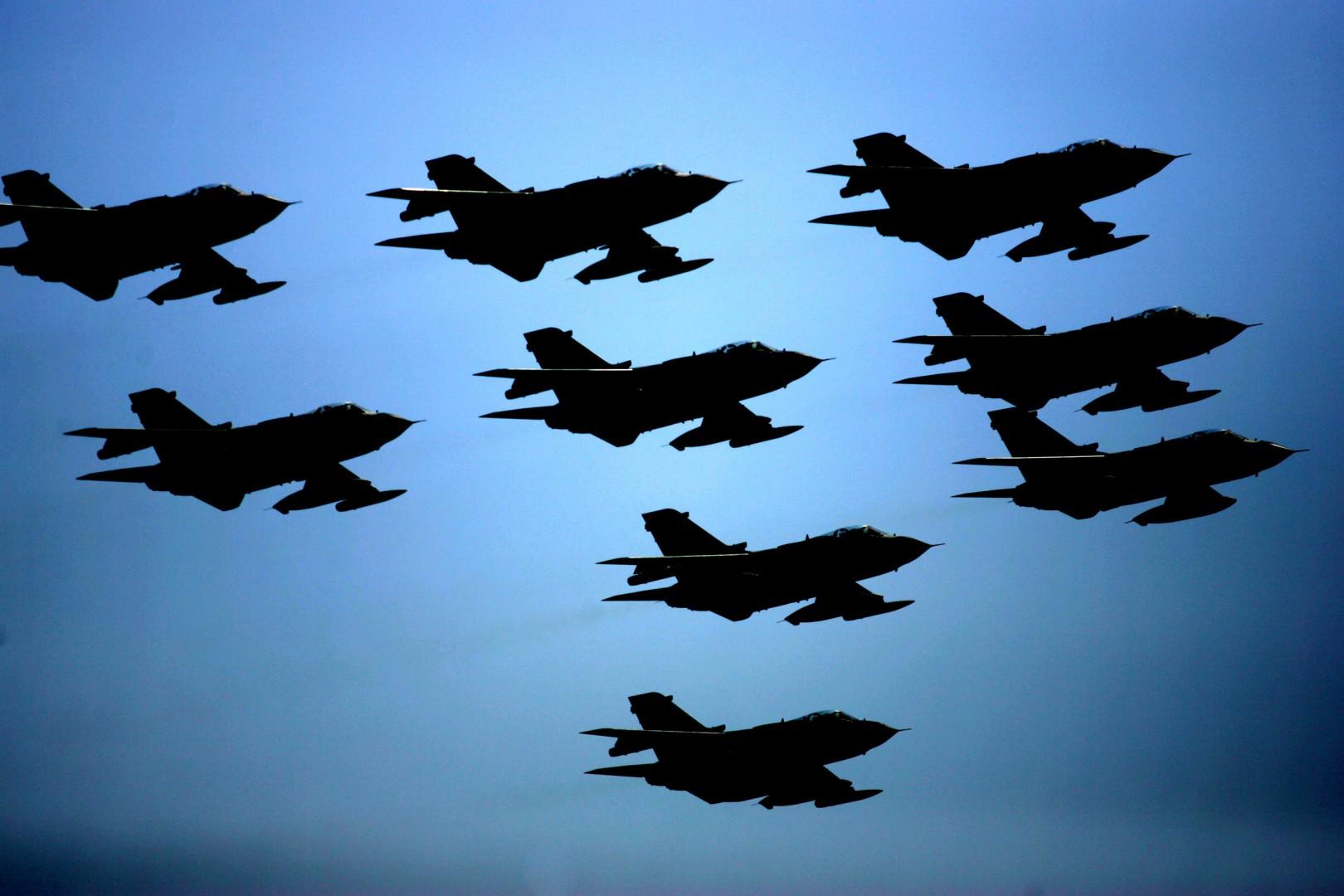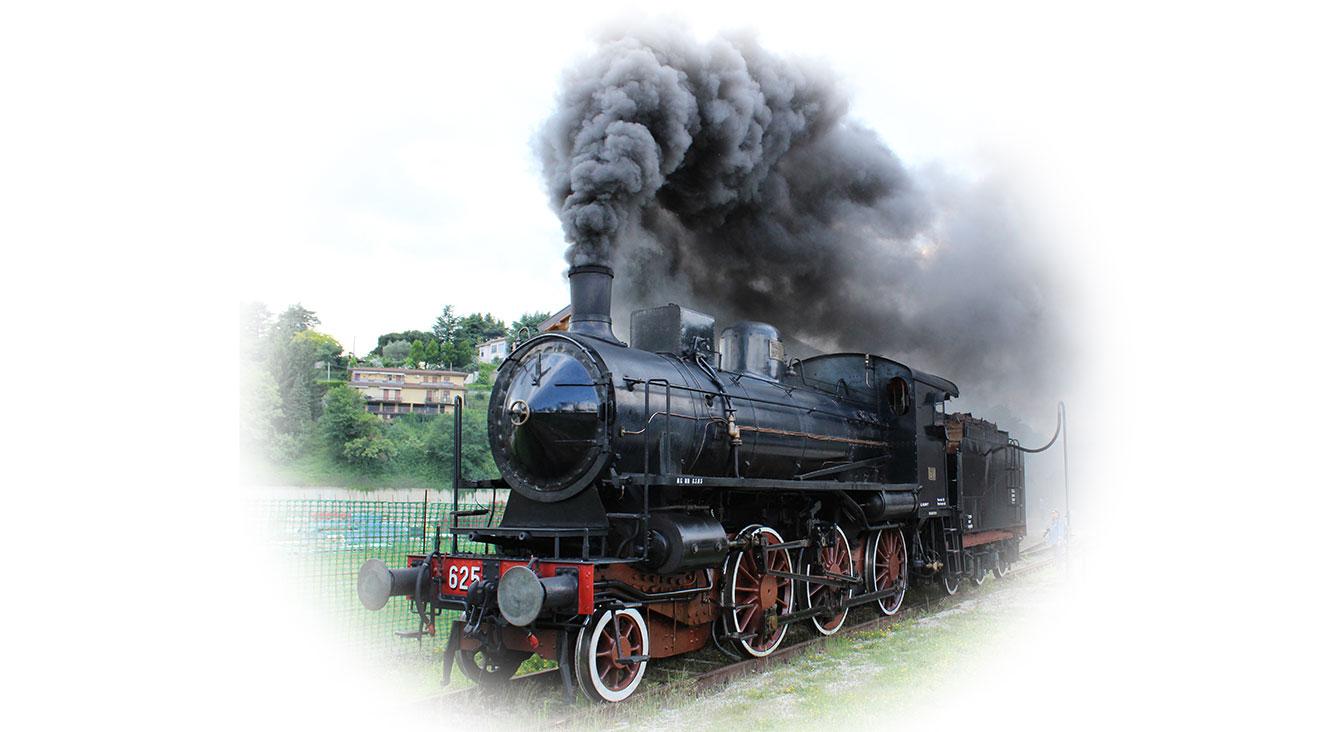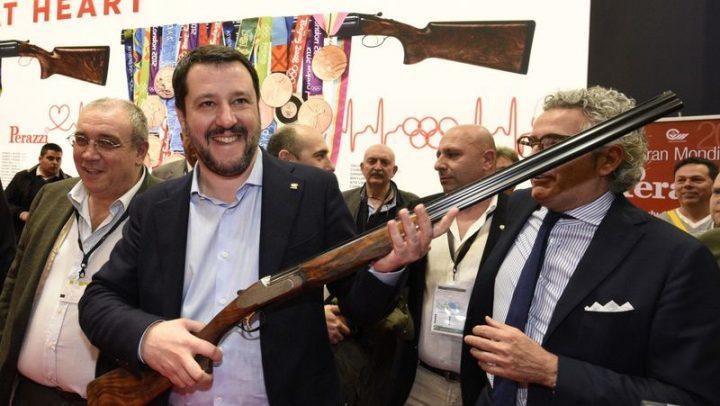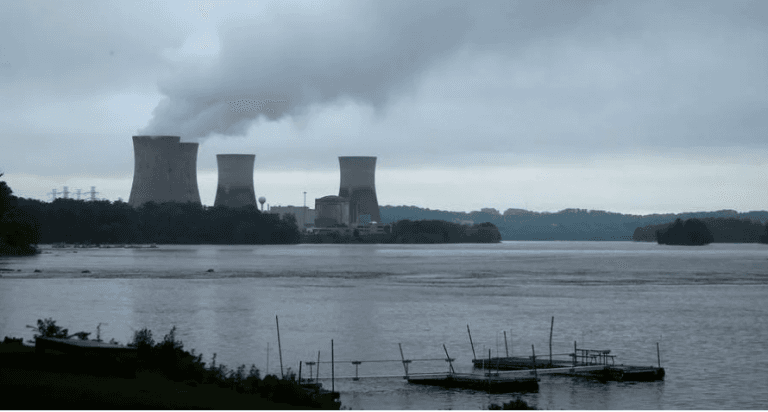
Boycott Granarolo! Chronicles from a week of struggle in Italy
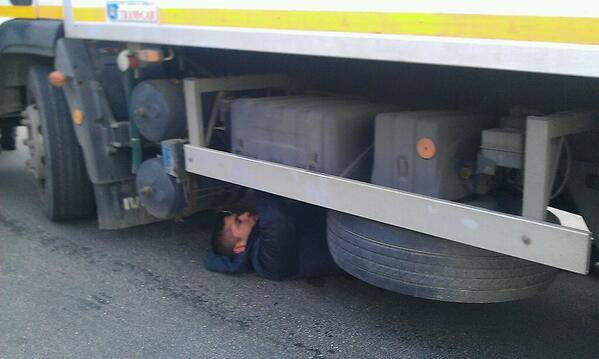
On last January 20, kicking off a nationwide week of struggle against austerity, the loaders and their supporters from the SI Cobas grassroots trade union, the Laboratorio Crash social center and the university and high school student autonomous collectives once again picketed the gates of the Granarolo dairy company on the outskirts of Bologna. The goal – the same after 9 months of pickets, blocks, strikes and protests – was the reinstatement of 42 of 51 unjustly fired workers from the SGB logistics cooperative company. A binding agreement signed last July by the cooperatives, the SI Cobas and the then-prefect of Bologna, in order to achieve that, was never implemented by the bosses – in an attempt to wear down the protest.
The demonstration started at noon – featuring the iconic camping van that assisted the trade union loaders in 2012 during their struggle against similar abuses at the IKEA headquarters in Piacenza – in an effort to set up a permanent picket and indefinetly blocking incoming and exiting trucks. At 5 pm the police tried to evict the demonstrators from one of the three gates of the Granarolo plant. The loaders sat in front of the trucks to stop them, then withstood pulls, kicks and shield strikes by the police and carabinieri forces; in spite of two demonstrators being blocked by them and another protestor sent to the hospital after an asthma attack, the picket managed to block a total of about 80 trucks, vans and milk tank wagons during the day.
On January 22, another surprise picket ensues to follow a new strategy of wildcat blocks, after Granarolo tried to adapt its logistics’ schedule to cope with the many early-morning blockages by the workers. Also traffic in the contiguous road was blocked, until two police wagon came and much to the latter’s chagrin the picked was called off. Calls for solidarity and to provide the picket with food and blankets were issued by Laboratorio Crash and the student collectives to the city, in addition of a call for an international boycott of the expanding company.
The next day, police forces (that Granarolo previously rewarded with fresh dairy products) came in large numbers, nervous and determined to break up the ongoing picket – that would have been called off only upon the restarting of negotiations with the prefect and extending unemployment subsidies for the loaders; which, because of their long-lasting payment delay were increasingly getting under threat of eviction from their homes as well. A most brutal and arbitary repression, that briefly echoed the horrors of the Genoa G8 in 2001, ensued; police tried to prevent demonstrators filming it – arresting an independent reporter, blocking him for more than 4 hours and forcing him to cancel the pictures of the atrocities he took with his camera. Policemen went as far as cordoning off from their comrades two loaders lying in protest under the trucks, in order to cover the helpless pair with illegaly detained (for the standards of Italian police) pepper spray. Other four people were arrested after police and carabinieri unleashed a savage beating, with the help of some 35 blacklegs that hammered away at some five isolated workers. Still, the loaders and their supporters resisted and started a roadblock, in order to return later at the company gates, and a provincial logistics’ general strike was called on the following day. At the end of the day, two loaders were still in police custody.
On January 24 the local press published a full-page open letter of the Granarolo company to the city, claiming of not being involved in the logistics’ cooperatives workings and requesting the authorities to crush the protest for good. Apart from the criticism this letter raised on the social media (“Then why they are involved in the negotiations? And why they did not comply with the shared agreements?”), the SI Cobas national board swiftly answered by the words of Fabio Zerbini – a delegate recently being targeted for his union activity in Milan, to the point of being ambushed and beaten up by unknown assailants. Zerbini denounced the Legacoop (a huge cooperative companies network including Granarolo) promoting the workers’ repression in cahoots with political power, and participating in other despicable activities – among these being the management of migrant Identification and Expulsion Centers such as the Lampedusa one.
Meanwhile more than a hundred of workers returned, under a heavy rain, at the gates of Granarolo, as working activities were stopped in other companies’ warehouses in the province of Bologna. A solidarity demo marched in Milan, while yet again the demonstrators in cordon confronted the police and resisted, being removed from the site.
Anonymous joined the fray by putting the Granarolo website out of commission in the evening and organizing a fax bombing to clog up the company and the police forces hotlines.
On January 25 the centre-left mayor of Bologna endorses the Granarolo company through a press release; also his Security assessor supports its stance, even though during a twitter conversation she is revealed to be clearly oblivious of many developments of the case. On the same day a judicial hearing took place, as two loaders were still unjusly detained at the Dozza jail – being them actually victims of police violence, as many recordings showed. By providing this evidence, the defence attorney complained for the terms of their arrest and their endorsement by the judiciary; meanwhile beneath the court a picket of loaders and supporters brought its solidarity to Garib and Redouane, the two detainees. The next day they are finally freed. Meanwhile the solidarity spreads across the country and abroad as well; the struggle of these logistics’ workers could win by also teaching to many people how to resist the cooperatives’ system and the capitalist power related to them.
Ti è piaciuto questo articolo? Infoaut è un network indipendente che si basa sul lavoro volontario e militante di molte persone. Puoi darci una mano diffondendo i nostri articoli, approfondimenti e reportage ad un pubblico il più vasto possibile e supportarci iscrivendoti al nostro canale telegram, o seguendo le nostre pagine social di facebook, instagram e youtube.















